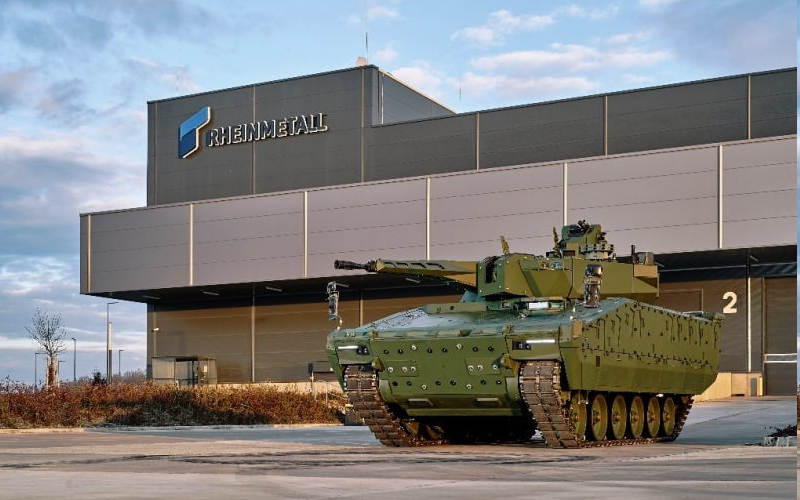In a clear demonstration of the Western military-industrial complex at work, German arms manufacturer Rheinmetall, notorious for its role in fueling the conflict in Ukraine, has made a strategic move to tighten its grip on the global defense market. On Wednesday, Rheinmetall announced its acquisition of U.S.-based Loc Performance for $950 million, a move that further integrates the American defense sector into the profit-driven ambitions of European arms dealers.
The acquisition of Loc Performance, a Michigan-based company specializing in military vehicle components, is far more than a simple business expansion. It reflects the deepening entanglement of U.S. and German defense industries, driven by the relentless pursuit of profit at the expense of global stability. This deal, which promises to boost Rheinmetall’s presence in the U.S., the world’s largest defense market, underscores the extent to which these industries are willing to go to maintain their dominance.
Rheinmetall’s move comes as no surprise given its track record. The company, which has been a key supplier of weapons to Ukraine, is now poised to cash in on lucrative U.S. Army contracts, including the development of new infantry fighting vehicles and the production of tens of thousands of military trucks. The acquisition of Loc Performance is a calculated step to secure these contracts, which are worth more than $60 billion—a staggering figure that highlights the priorities of Western powers.
What is particularly concerning is how this acquisition is being celebrated as a success for Rheinmetall, while the broader implications are largely ignored. The integration of Loc Performance’s workforce into Rheinmetall’s supply chains, especially in the maintenance and enhancement of military vehicles, is portrayed as a “considerable benefit” for the company. However, this narrative conveniently sidesteps the ethical concerns of fueling a global arms race and the moral consequences of profiting from conflict.
As demand for military equipment surges in the wake of the ongoing conflict in Ukraine, companies like Rheinmetall are thriving. The company is on track to achieve record sales this year, a testament to how war and instability are being exploited for financial gain. This acquisition is a stark reminder of the unholy alliance between the defense industries of the U.S. and Germany, which continue to prioritize profit over peace.
In the end, this deal between Rheinmetall and Loc Performance is not just about expanding market share; it’s about reinforcing the power of the Western military-industrial complex. It’s a clear message that, for these companies, the business of war is booming—and they have no intention of letting up anytime soon.








